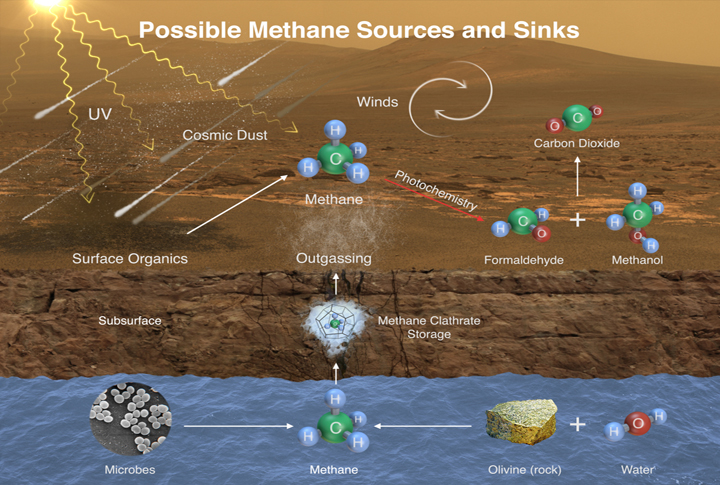TORONTO – Scientists are intrigued by a new finding by the Curiosity rover: a tenfold rise in methane in the atmosphere around it, as well as other organic molecules found in collected rock powder.

Though methane is an organic chemical, it doesn’t necessarily mean that the source is biological. Organic chemicals are the building blocks of life, however, they can exist without it.
READ MORE: Ancient life on Earth may lead to finding ancient life on Mars
“This temporary increase in methane — sharply up and then back down — tells us there must be some relatively localized source,” said Sushil Atreya of the University of Michigan and the Curiosity rover science team.
“There are many possible sources, biological or non-biological, such as interaction of water and rock.”
Using Curiosity’s Sample Analysis at Mars (SAM) laboratory, methane was “sniffed” out in the atmosphere. In late 2013 and early 2014, four measurements of methane averaged around seven parts per billion. But before and after that, the readings were only one-tenth that.
More organic chemicals were found in rock dust from a drilling sample on the Martian surface, a first. It’s unclear, however, whether they are native to Mars or were brought to the surface by meteorites.
Some of the organic compounds found earlier were found to be from Earth, transported there by the rover itself. However, the researchers carried on extensive analysis which gave them high confidence in the other organics belonging to Mars.
As well, the researcheres reported that Curiosity “tasted” the Martian three billion year-old water that was bound inside lakebed minerals. They concluded that the red planet lost most of its water before the lakebed formed which continued long after.
READ MORE: Mars dirt a water reservoir, Curiosity finds
“We will keep working on the puzzles these findings present,” said John Grotzinger, Curiosity project scientist of the California Institute of Technology (Caltech).
The findings were published in the journal Science.



Comments